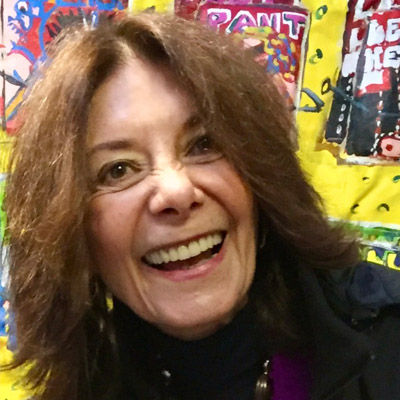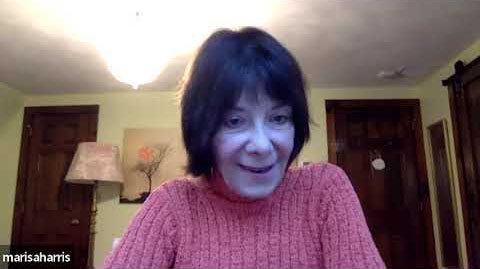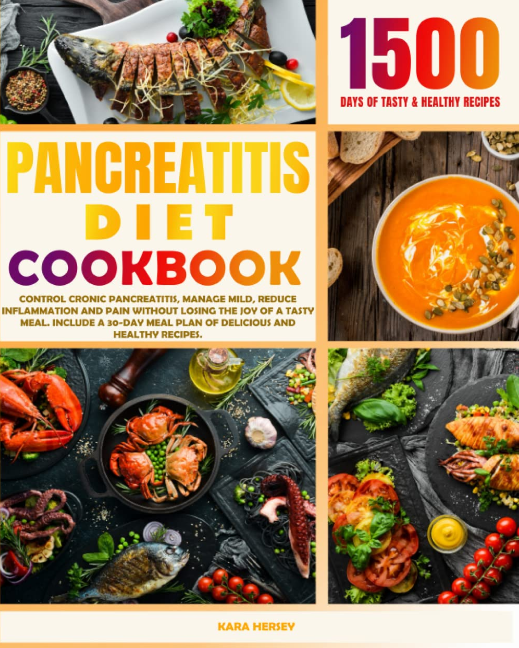
Marisa Discusses The Importance of Getting A Second Opinion, or Even A Third Opinion. Finding the Right Doctor is Crucial.
Written By Julia Brabant
December 2022
Diagnosed: 1998 Stage 4
Current Status: No Sign of Cancer
When Marisa Harris received a Stage 4 pancreatic cancer diagnosis, doctors told her that her condition was incurable and untreatable. They also said her disease would take her life within a matter of months – and that nothing could be done. She hasn’t seen those doctors since 1998.
Now, decades later, Marisa draws upon her own past as a high-ranking corporate executive for a Fortune 500 company, a 24-year pancreatic cancer survivor and an 18-year cancer coach to help other patients navigate their own experiences with pancreatic cancer.
Marisa had experienced ulcers, gallbladder issues and similar problems throughout most of her life, so she visited her internist after a bad flareup of pain and discomfort. As the Vice President of Human Resources for a major corporation and a busy mother of three girls, she admittedly didn’t take the time to investigate further. So, she took her internist at his word when he said Marisa’s symptoms were likely the result of her lifelong stomach problems.
Several months later, Marisa had a serious horseback riding accident while on vacation in Tucson, Arizona. She’d split her head open, dislocated her shoulder and tore her retina. About a week later, she noticed a swollen lymph node in her groin. Her internist said it was the result of her horseback riding accident – and that she should come back in six months. Fortunately, when she had a routine gynecological visit about a week later, her gynecologist felt otherwise.
The gynecologist immediately called a surgeon’s office and arranged for her to get in immediately, raising Marisa’s fears. The surgeon, suspecting cancer, recommended having the lymph node biopsied immediately. A week later, Marisa was sitting in her office at work when the surgeon called and told her she had pancreatic adenocarcinoma, directing her toward an oncologist.
Marisa felt as if an ice wall fell, surrounding and separating her from everyone in her circle. The life she had known disappeared in that moment – but things got worse. The oncologist told Marisa and her husband that Marisa had Stage 4 pancreatic cancer, saying her condition had progressed to the point where she had no options.
“There must be something that can be done,” Marisa said. “What about diet? What about nutrition and exercise? What about supplements and chemotherapy?”
The doctor continued to shake his head, telling them there was nothing they could do to save her life with pancreatic cancer.
“My whole world fell apart – the diagnosis was earth-shattering,” she said. “Even worse than that was being told that nothing could be done. His words robbed me of my life in that moment, because I had no hope – and without hope, I was dead inside. I may have been breathing, but I felt I was no longer alive.”
Even with everything she had going on, Marisa knew how important it was to get a second opinion after a serious diagnosis. She went to two other major cancer centers after that one, both of which concurred that there was nothing they could do.
Her whole life, Marisa believed that when you got a serious diagnosis, your responsibility was to go to the best doctors and follow their advice. But now, the best medical advice was that there was no help or options.
Her husband, Bob, thought that they could benefit from a different sort of energy and signed them up for a workshop at a holistic learning center called Omega. Marisa didn’t want to go, but she saw how much Bob, too, was hurting and agreed. During workshop introductions, Marisa told the other participants that, four weeks ago, she’d received a diagnosis of Stage 4 pancreatic cancer and been given, at best, nine months to live (but likely between four and six).
After the first night of the workshop, a woman approached and asked if she could speak to her. She said, “Marisa, I have an Uncle Louie – he’s the most argumentative man you’ll ever meet. He ruins every family event. Ten tears ago, he was diagnosed with Stage 4 lung cancer and given, at most, two months to live.”
The woman continued. “Last week, Marisa, my favorite niece, Rachel, got married,” she’d said. “Uncle Louie not only picked a fight with the groom’s father, but then, with the groom, too.”
In that moment, Marisa saw the light in the darkness. She’d just heard her first survivor story and decided that she was going to be an “Uncle Louie,” too – albeit not someone who ruined family events.
“People need to know about long-term pancreatic cancer survivors,” Marisa said. “That’s why sharing stories is so important.”
Marisa decided she was going to learn everything she could about people who lived much longer than the odds and saw their conditions improve. She went to the New York City Public Library and discovered that there were hundreds of articles, books and studies that highlighted what people were doing that seemed to contribute to their abilities to live longer and better. That became Marisa’s program for healing.
One of the things that came out of her research was the importance of having doctors who were both positive and caring. When she read survivor stories, it was like a brick hit her in the head.
“In my years in HR, I’d never have hired someone, or signed off on a hire, if they thought we were going to fail in our mission and goals,” Marisa said. “Why would I have a doctor who absolutely believed I was going to die in a matter of months? I knew then that I needed to find a brilliant, well-trained and experienced oncologist who believed in the possibility that I could get well – and was enthusiastic about helping me.”
A doctor she saw after this realization said his team could likely buy her some time and help her live longer than six or seven months. She asked him if there was a possibility she could be cured, to which he replied, “Absolutely not.”
“I knew that wasn’t what I wanted,” Marisa said. “I wasn’t stopping until I found an oncologist who believed in the possibility.”
Eventually, she found Dr. Mitchell L. Gaynor, at the Strang Cancer Center at Cornell Medical Center.
“He talked like no doctor I’d ever met,” Marisa said. “He said, ‘Doctors aren’t God. They don’t even know when they’re going to die – how do they know when you will? Miracles happen every day, and there’s so much you can do to get well again.’”
This is what Marisa had wanted to hear – but it sounded too good to be true. Dr. Gaynor picked up on her hesitation and said, “Whether you choose me to be your oncologist or not, you should come to my support group tomorrow night at the Strang.”
She didn’t want to go because she was fearful of hearing horror stories about pain and suffering, and she was already scared enough without them. And besides, she thought, what kind of doctor has his own support groups? But her husband convinced her to go, telling her they’d sit by the door and that she could tap him on the shoulder when she was ready to leave.
The following evening, when attending the group, Marisa met a woman named Dorothy. She had vibrant red hair and was full of energy, radiating health. Marisa decided she must be a friend or family member of someone with cancer. It turned out she had Stage 4 cancer – and that gorgeous red hair was a wig, because she was undergoing strong chemotherapy. Marisa heard her say she was a runner, which Marisa was, too – until doctors told her she’d never run again. And here this Stage 4 patient was, running. Dorothy told Marisa that many of Dr. Gaynor’s other patients had also been with other oncologists who believed they were going to die soon – but they didn’t.
This was Marisa’s second survivor story – and at that moment, she knew Dr. Gaynor was going to be her oncologist.That’s the importance of pancreatic cancer survivor stories.
Dr. Gaynor strongly encouraged her to undergo chemotherapy – something three previous oncologists had ruled out, telling her it would do nothing to help her and instead make her sicker. She was reluctant about chemotherapy because of what other oncologists had said. While they had flatly discounted the value of lifestyle changes, she had no doubt that if they had even the slightest belief that it might be helpful, they would have offered chemotherapy to her. She’d also heard many others refer to chemo as poisonous and toxic and was fearful about side effects. Most of all, she didn’t want to lose her hair. Being completely bald terrified her.
Based On Extensive Research, Marisa Made Lifestyle Changes
Marisa made many lifestyle changes which included, among many others, a cancer-defense diet, acupuncture, daily journaling, and meditation and other stress-reduction practices. These changes weren’t easy. To make her health her number one priority in action, it meant leaving a two-decade vocation that she loved—and one that provided her family with financial security. It also meant stepping away from some stressful relationships.
For five months, she committed herself to this regimen. The results were somewhat positive. Her abdominal pains lessened. Her pancreatic cancer marker, CA 19-9, went down, but CT scans showed no change. Once again, Dr. Gaynor urged her to undergo chemotherapy. He told her he was concerned that it would spread to her lungs and brain.
Marisa decided to move forward with treatment and had about seven months of chemo. She decided that before she’d start, she’d only feel love and gratitude for it. All her life, she’d believed that what you love will love you back, and that what you hate will hate you back. When she walked into the room for chemotherapy for her first treatment, she brought heart stickers with her and placed them on the IV pole that held her medication.
Marisa still firmly believed that she could enhance the effectiveness of the chemotherapy by continuing to make lifestyle changes, having a cancer-defense diet, complimenting her running by building up her muscles which is important in tolerating chemotherapy, meditating, and, most of all, removing stress from her life.
These actions were not easy – but Marisa was committed to doing everything she could to get well. She also decided that if she were to die in nine months, then she was going to make them the happiest and most authentic time of her life. Nothing had changed medically at that time, but Marisa had changed and was living, for the first time, a life that felt true to her and reflected her deepest priorities. Dr. Gaynor suggested that Marisa launch her own support group for his patients – which led to a new career.
“Dr. Gaynor was the first oncologist to recommend that I have genetic testing,” Marisa said. Her parents had died of cancer, and she’s also lost a sister to cancer at age 36 as well as both grandmothers and several cousins. “He explained that, if I was BRCA-positive, it would improve my chances of living longer – and even getting better. It would also make me eligible for different types of chemo. There’s no question that Dr. Gaynor saved my life – not only through his expertise and knowledge, but equally with his caring and commitment, not just to me, but to all his patients. He also gave me something that was truly a miracle – about six weeks into the chemotherapy, I was at his support group and said, ‘You won’t believe this – but I’ve never been happier in my life.”
Over the next few years, Marisa became certified as a holistic life and cancer coach, and in mind-body medicine. These specific trainings complimented her two graduated degrees in Psychology from Columbia University. She has spent more than 18 years guiding hundreds of pancreatic cancer patients along their own cancer journeys and feels it’s the greatest miracle when her clients, too, say, “You won’t believe this – but I’ve never been happier in my whole life.”
Some of these clients don’t get well again, but the quality of their lives improved tremendously. For Marisa as well as her patients, pancreatic cancer became a permission slip to live the lives they loved.
Marisa is also in the process of writing a book about the six challenges patients diagnosed with pancreatic cancer encounter most – and what resilience practices could help them work through these challenges. The book contains stories and strategies addressing the inevitable challenges that pancreatic cancer patients, their loved ones and medical professionals will face on a cancer journey.
“I’m going to do everything that might help me live longer – but I’m also going to live knowing my life may be shorter,” she said. “I’m going to make the time remaining the most authentic and happy it can be.”
Marisa also noted that she’s relied on the same affirmation since her diagnosis. “I’m not going to die before I’m dead,” she reiterated. “And I know it’s possible to have a good death.”
Marisa welcomes questions and comments from patients facing pancreatic cancer. To get in touch, email marisaharris@aol.com.
Marisa Harris: One of the Longest Living Pancreatic Cancer Patients





Thank you for this! I’m even more inspired now!
Wow!! You are so inspirational. My husband has been surviving Pancreatic Cancer for 4 1/2 years. The first thing we did the weekend of his diagnosis was to ask for Survivor stories too! Sue Aller. Suealler4@gmail.com.
Thank you sharing ! Very inspirational
I’m a former patient of Dr Gaynor and I was always amazed by your story and how much you gave to others. I also lovingly remember Dorothy.
Thanks for sharing such a inspirational story. 2 weeks ago I got diagnosed 4 stage Pancreatic cancer. Now I will follow all your steps to fight this devil and will become another survivor with a positive attitude.